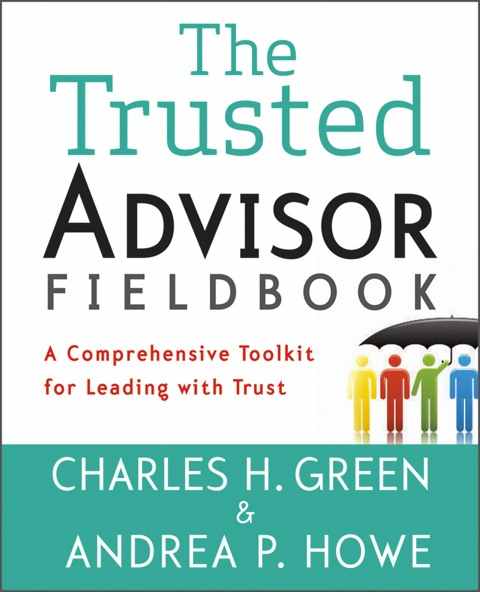Relationships or Metrics? I Haven’t Got Time for Both
I heard it again today. I hear it in almost every workshop I do, and in every – bar none – big company sales organization I work with. It sounds like this:
I believe in trust and relationships, but it’s a luxury problem. Here in the real world, the pressure’s on. I don’t have time to do all that nicey-nice stuff, I’ve got to hit my numbers. And even if I did have that kind of time, my clients don’t. The days of easy-going ‘what’s keeping you up at night’ conversations are over – they’ve got as much pressure as I do, and maybe more.
I just don’t have time to build trust-based relationships. Hopefully, someday I will.
But with that attitude, that day will never come. Because trust-based relationships don’t come when you’ve got plenty of time – they’re forged when you don’t have time, and have to trust someone. The whole relationships-vs.-metrics debate is based on four false beliefs. When will you get rid of them?
Myth Number One: You Don’t Have the Time
Maybe you’re old enough to remember an old ad for Fram Oil Filters: “You can pay me now – or you can pay me later.” It stuck because it rang very true – if you refused to pay for a cheap oil filter, you’d end up paying for much more expensive engine repairs later.
It’s the same here. Every phone call, conversation and meeting that you cut short to “save time” puts a label on your head. The label says, “I’m a transactional sales guy; I will never invest in my customer, and I’ll blame you for being the busy one.”
As Aristotle said, you become what you practice. If you never take time for relationships, if all you do is transact, then you become a transactor. And nobody suddenly decides one day out of the blue that they really want to have a trust-based relationship with someone who’s been transacting with them since forever.
The truth is, a little time taken now, up front, results in far more efficient use of time down the road – even just next month. Trust-based relationships aren’t just more effective, they’re more timely and less costly.
You do have the time; you’re just constantly refusing to invest it for returns in future time.
Myth Number Two: Your Client Doesn’t Have the Time
How do you know? Because they told you so? Get real. What client is about to tell you they’re not busy? They want to control their time with you, not give control over to you.
And the same logic applies: our customers are as short-sighted as we are, constantly failing to invest a bit of time up front for future gains of time. So they tell you they don’t have the time, and you believe it, and the two of you race off so as to cut the elapsed time of your transaction. And then do it all over again the next time you meet.
They have as much time or as little time as you do; and if neither of you breaks the vicious cycle, the cycle will stay unbroken.
Who should break it? That’s easy – you should.
Myth Number Three: Trusted Relationships Take Time to Create
The truth is, people form strong impressions of trust and relationship very, very quickly. Initial impressions get formed in much less than a second.
Think about someone you trust. If asked why, your first thought is not, “our trust has grown over the last 6 years.” It’s far more likely something like, “One day we were talking about XYZ and he said an amazing thing…ever since…”
Because trusted relationships are step functions, not continuous curves. They are based on events, moments, instances. Trust gets created in those moments. If you never let yourself be open to those moments, it will never happen.
Trust doesn’t take time. The only sense in which it does is the creation of a track record. All qualitative aspects of trust take virtually no time at all.
Myth Number Four: Relationships are Built on Quantity of Time
Wrong. Relationships are built on quality, not quantity. It’s true with your dog. It’s true with your five-year old child. And it’s equally true with your client.
The quality of your time matters far more than the quantity. An hour on the golf course or hoisting a beer doesn’t hold a candle to sincerely asking a difficult question, and conveying to your client that you care about the answer, and that you’re a safe haven in discussing it.
A lot of the “I don’t have time for relationships” line is frankly a cover-up for fear of customer intimacy. Invariably, the workshop participants who tell me they haven’t got time are the same workshop participants who tell me that customer intimacy is too risky, and potentially unprofessional. Meanwhile, their compatriots who understand the qualitative basis for relationships are selling circles around them.
Haven’t got time to form relationships and still meet your metrics? If that’s what you’re saying, you don’t understand how to meet your metrics. In any medium timeframe, the person with the relationships will outperform on all business metrics the person without the relationships.
And being busy’s got little to do with it.

 In college, I majored in philosophy. I underlined all the important parts in my texbooks – the hard, the empirical, the deductive, the categorical. I underlined about half of each book. What I skipped over were the soft and squishy parts: know thyself, be virtuous, metaphysics, that kind of thing.
In college, I majored in philosophy. I underlined all the important parts in my texbooks – the hard, the empirical, the deductive, the categorical. I underlined about half of each book. What I skipped over were the soft and squishy parts: know thyself, be virtuous, metaphysics, that kind of thing. I rarely write blogposts promoting the services we offer. But since we have something new to offer – this is one of those times.
I rarely write blogposts promoting the services we offer. But since we have something new to offer – this is one of those times. Our Story Time series brings you real, personal examples from business life that shed light on specific ways to lead with trust. Our last story proved that
Our Story Time series brings you real, personal examples from business life that shed light on specific ways to lead with trust. Our last story proved that  Charlie Green
Charlie Green Last week I had the pleasure of speaking in Minneapolis at the annual meeting of the
Last week I had the pleasure of speaking in Minneapolis at the annual meeting of the